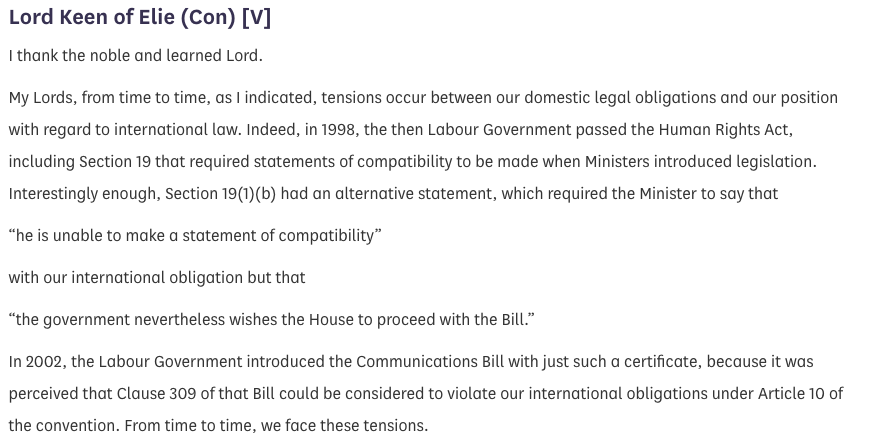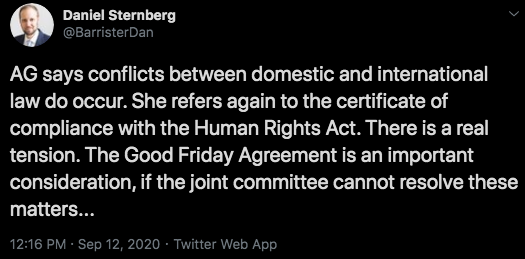Today is an important one to remind people that:
(1) The UK’s membership of the EU is defined by EU law under its Treaties.
(2) The repeal of the European Communities Act 1972 has zero bearing on membership. It only affects whether the UK is domestically compliant with EU law.
(1) The UK’s membership of the EU is defined by EU law under its Treaties.
(2) The repeal of the European Communities Act 1972 has zero bearing on membership. It only affects whether the UK is domestically compliant with EU law.
Oh, and (3) commencement regulations, which don’t require MPs’ approval, can be made at practically any time. In the case of the 2018 Act they have zero bearing on whether and when the UK leaves the EU. Govt could have made them in July 2018 or October 2019. No legal difference.
The making of commencement regulations underlines that the Communities Act will be repealed “on exit day” whenever that is.
An unremarkable thing given repealing it before exit day would breach EU law and repealing it afterwards would create massive uncertainty in domestic law.
An unremarkable thing given repealing it before exit day would breach EU law and repealing it afterwards would create massive uncertainty in domestic law.
Things that making EU (Withdrawal) Act 2018 commencement regulations doesn’t do:
(1) take the UK out the EU
(2) prevent a further extension of Article 50 or a change to exit day
(3) prevent steps being taken to revoke Article 50 per the CJEU Wightman judgment
(1) take the UK out the EU
(2) prevent a further extension of Article 50 or a change to exit day
(3) prevent steps being taken to revoke Article 50 per the CJEU Wightman judgment
• • •
Missing some Tweet in this thread? You can try to
force a refresh

















